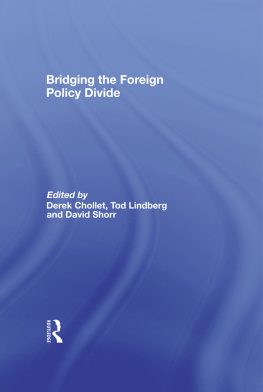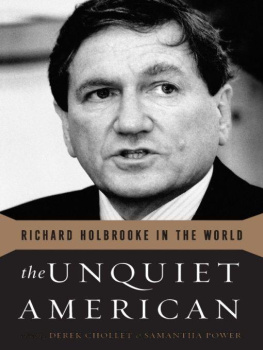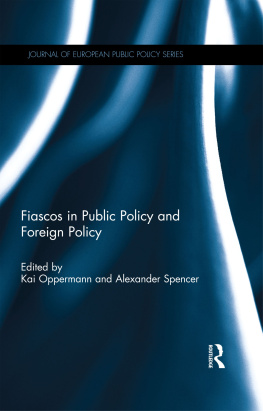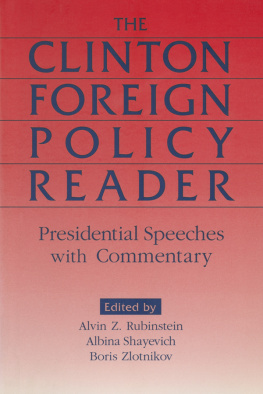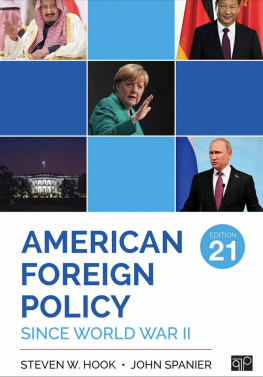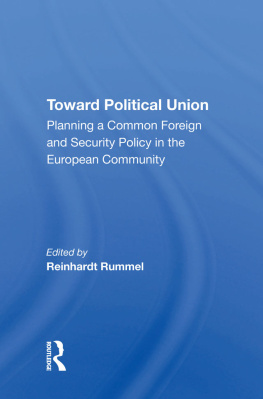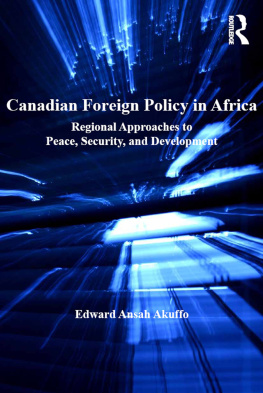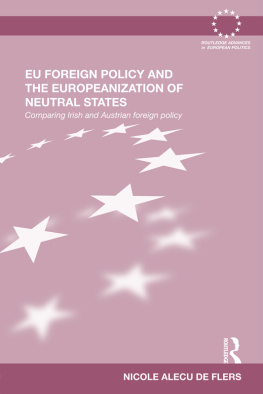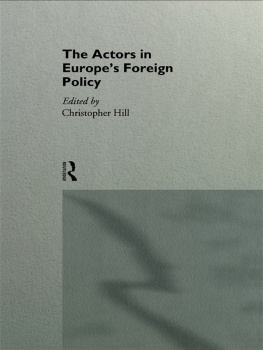Bridging the Foreign Policy Divide
Bridging the Foreign Policy Divide brings together twenty leading foreign policy and national security specialistssome of the leading thinkers of their generationto seek common ground on ten key, controversial areas of policy. In each chapter conservative and liberal experts jointly outline their points of agreement on many of the most pressing issues in U.S. foreign policy, pointing the way toward a more constructive debate.
In doing so, the authors move past philosophical differences and identify effective approaches to the major national security challenges confronting the United States. An outgrowth of a Stanley Foundation initiative, this book shows what happens when specialists take a fresh look at politically sensitive issues purely on their merits and present an alternative to the distortions and oversimplifications of today's polarizing political environment.
Derek Chollet is a senior fellow at the Center for a New American Security, a nonresident fellow at the Brookings Institution, and an adjunct associate professor at Georgetown University.
Tod Lindberg is a research fellow at the Hoover Institution, Stanford University, and editor of its journal. Policy Review.
David Shorr is a program officer at the Stanley Foundation, focusing on national security strategy and the U.S. role in the world.
Bridging the Foreign Policy Divide
A Project of the Stanley Foundation
Edited by
Derek Chollet, Tod Lindberg, and David Shorr
First published 2008
by Routledge
270 Madison Ave, New York, NY 10016
Simultaneously published in the UK
by Routledge
2 Park Square, Milton Park, Abingdon, Oxon OX14 4RN
Routledge is an imprint of the Taylor & Francis Group, an informa business
Transferred to Digital Printing 2009
The Stanley Foundation 2008
Typeset in Transitional 521 by
Keystroke, 28 High Street, Tettenhall, Wolverhampton
All rights reserved. No part of this book may be reprinted or reproduced or utilized in any form or by any electronic, mechanical, or other means, now known or hereafter invented, including photocopying and recording, or in any information storage or retrieval system, without permission in writing from the publishers.
Trademark Notice: Product or corporate names may be trademarks or registered trademarks, and are used only for identification and explanation without intent to infringe.
Library of Congress Cataloging-in-Publication Data
Bridging the foreign policy divide: a project of the Stanley Foundation / edited by Derek Chollet, Tod Lindberg and David Shorr.
p. cm.
1. United StatesForeign relations2001 2. International cooperation. 3. United StatesMilitary policy. I. Chollet, Derek H. II. Lindberg, Tod. III. Shorr, David. IV. Stanley Foundation.
JZ1480.B67 2008
327.730090511dc22
2007033995
ISBN10: 0-415-96226-9 (hbk)
ISBN10: 0-415-96227-7 (pbk)
ISBN10: 0-203-93320-6 (ebk)
ISBN13: 978-0-415-96226-1 (hbk)
ISBN13: 978-0-415-96227-8 (pbk)
ISBM13: 978-0-203-93320-6 (ebk)
Contents
| David Shorr |
| Derek Chollet and Tod Lindberg |
| Ivo H. Daalder and Robert Kagan |
How to Keep From Overselling or Underestimating the
United Nations |
| Mark P. Lagon and David Shorr |
The Cost of Confusion: Resolving Ambiguities in Detainee
Treatment |
| Kenneth Anderson and Elisa Massimino |
| Peter Brookes and julianne Smith |
| Frederick W. Kagan and Michael OHanlon |
| Stephen E. Biegun and jon B. Wolfsthal |
| Michael Schiffer and Gary Schmitt |
| Andrew Erdmann and Suzanne Nossel |
| Francis Fukuyama and Michael McFaul |
| Derek Chollet and Tod Lindberg |
Before Bridging the Foreign Policy Divide was a book, it was a project of the Stanley Foundation, and like all foundation projects, it depended on key staff members to make it run smoothly. Amy Bakke and Margo Schneider ushered the text of all ten essays through copyediting and production with great care and alacrity. Natasha Wilson Boland coordinated a punishing schedule of events, making us look highly organized in spite of ourselves. And Michael Schiffer played a key role as a matchmaker for the initial planning.
We are grateful to a number of colleagues for serving as early readers and commentators on the essays: Benjamin Wittes, Joshua Muravchik, Michael Kraig, Matt Martin, Michele Flournoy, Johanna Mendelson Forman, Steve demons, and Michael Lind. We were encouraged by John Oakes' confidence that this series deserved to be published as a book and thank our editor, Michael Kerns of Routledge, for making that happen.
Any collaboration of twenty highly opinionated policy experts from different political perspectives requires a degree of patience and a spirit of openness that is too often rare in Washington. Yet that is how every author engaged in this project, focusing not only on their own chapters, but providing constructive comments to others. As the coeditors of this motley band, we deeply appreciate our colleagues' willingness to join us, for the commitment they showed to this enterprise and to each other, and for the camaraderie the group shared.
Derek Chollet and Tod Lindberg wish to thank their respective institutions for supporting their work on this project. Kurt Campbell and Michle Flournoy of the Center for a New American Security and John Raisian, director of the Hoover Institution, Stanford University, graciously viewed this project as complementing rather than conflicting with their regular duties. Several review sessions took place in the Hoover Institution's Washington office, and we thank Sharon Ragland for her work to make that the pleasant experience it was.
While this book would not have been possible without help from the many individuals and institutions mentioned here, the views and opinions expressed in the pages ahead are the authors alone.
David Shorr
Many of the challenges that the terrorist threat poses for America's democratic system have drawn extensive attention and controversy. Questions of the separation of powers, privacy rights, and the handling of terrorist suspects have all been thoroughly aired, though far from resolved. The essays in this volume speak to a component of the American body politic that has received less focus, yet is equally vital: the quality of our debate on foreign policy and national security.
By definition, no consequential policy choice is ever self-evident. Whether the issue involves sending our military into battle or a diplomatic or economic step, whether the forum is the Congress, the White House, or a local town hall discussion, the interplay of arguments and the weighing of alternatives are essential. Especially for a superpower that sits at the center of the international system, and whose every move ripples out through the globe (and then reverberates back), the need for well-considered foreign policy decisions should be compelling.
Such collective wisdom should also be easily within the capacity of a society with a high degree of education, myriad links to the world beyond our shores, and a history of social-political self-renewal (the civil rights movement, for example). In other words, the United States has at its disposal a wealth of perspectives to help navigate rapid global change. For any challenge we encounter, the nation can draw on the counsel of the widely trayeled, battle-tested, shrewd-bargaining, street-smart, folkwise, business-savvy, and incisive philosophers of all stripesany and all of these, as applicable. Our political discourse need only open the marketplace of ideas for business. Except that it doesn't.

